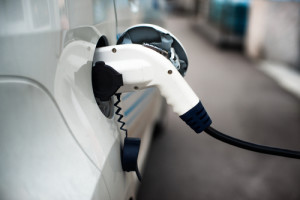The Ultimate Guide to Choosing a Home EV Charger in New Jersey
 As electric vehicles continue to grow in popularity, more homeowners are considering the best way to charge at home. Choosing the right charging setup can make daily driving easier, safer, and more efficient. We take pride in being New Jersey’s go-to electrician, which means we help families and businesses make informed decisions about their electrical needs, including EV charging. In this guide, we will walk you through everything you need to know about selecting a home EV charger that fits your lifestyle and your home’s electrical system.
As electric vehicles continue to grow in popularity, more homeowners are considering the best way to charge at home. Choosing the right charging setup can make daily driving easier, safer, and more efficient. We take pride in being New Jersey’s go-to electrician, which means we help families and businesses make informed decisions about their electrical needs, including EV charging. In this guide, we will walk you through everything you need to know about selecting a home EV charger that fits your lifestyle and your home’s electrical system.
Understanding the Basics of EV Charging
Before you decide on a charger, it is important to understand the difference between the two main types. Level 1 chargers are the standard plug in models that use a typical household outlet. They are the slowest option and often require overnight charging to fully power a vehicle. Level 2 chargers require a dedicated circuit and provide much faster charging speeds, often delivering a full charge in just a few hours.
Both Level 1 and Level 2 EV chargers serve different needs, and the right choice depends on how much you drive, your schedule, and your home’s electrical capacity. If you typically drive short distances and can charge overnight, a simpler setup may be enough. If you rely on quick turnarounds, a faster solution will fit better.
Why Level 2 Charging Is Becoming More Popular
For many households, a Level 1 charger may work for shorter commutes and lighter use. However, Level 2 charging has become the preferred choice for those who want convenience and speed. Installing a Level 2 unit can ensure that your car is ready to go even after a few hours of charging.
As more drivers rely on electric vehicles, EV chargers are becoming an essential home upgrade. They can improve day to day convenience and may even add appeal to your property. Many homeowners appreciate that a faster charge helps them keep up with busy schedules without constant planning.
Key Considerations Before Installing a Charger
When you are ready to move forward with installation, there are a few important factors to review. Here are some key points to keep in mind:
- Electrical Capacity: Your home’s panel must be able to handle the added load of a Level 2 unit.
- Location: The charger should be installed in a place that provides safe and easy access to your vehicle.
- Permits and Codes: Local regulations may require permits or inspections before installation.
- Professional Installation: Hiring a licensed electrician ensures safety and compliance with electrical codes.
These considerations can make the difference between a smooth installation and potential complications later. Planning ahead keeps the project on time and within budget.
The Benefits of Professional Installation
While it may be tempting to try a do it yourself approach, professional installation offers peace of mind. A trained electrician will confirm that your electrical system can handle the charger, install the proper wiring, and ensure everything is up to code. This is especially important when dealing with high voltage equipment that powers modern EV chargers.
Our team focuses on safe wiring practices, correct breaker sizing, and code compliant placement so your investment performs as intended. With the right setup, EV chargers deliver consistent power without tripping breakers or creating hot spots in your system.
Making the Right Choice for Your Home
At the end of the day, the best home EV charger depends on your needs and driving habits. If you only drive occasionally and have plenty of time to charge, a Level 1 unit might meet your needs. If you rely on your vehicle daily or own more than one electric car, a Level 2 charger is usually the smarter option. The most reliable results come from pairing quality equipment with expert installation.
Ready to install your home EV charger? Contact us today and let our experienced team guide you through every step of the process.














